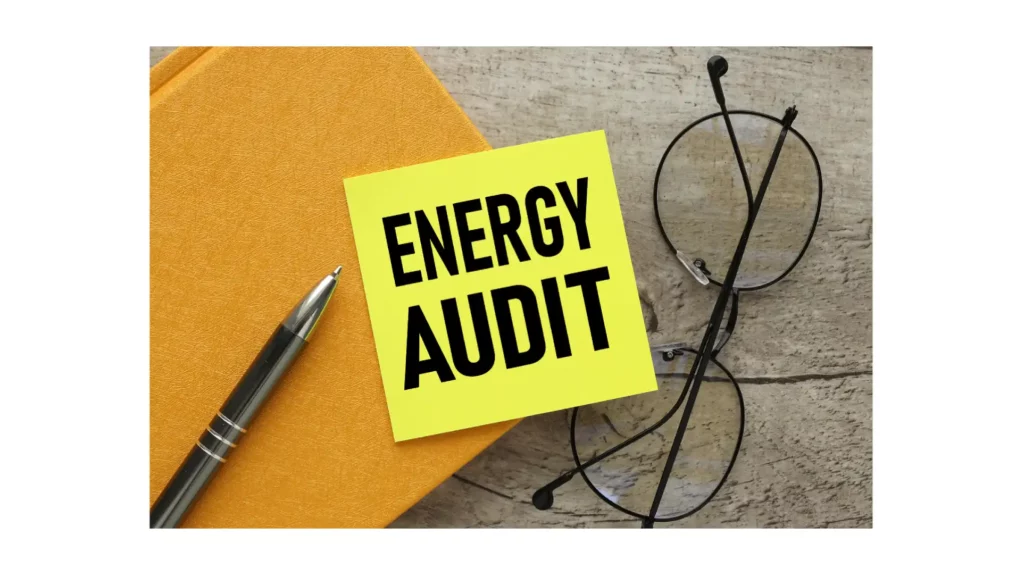In today's eco-conscious world, the importance of energy efficiency cannot be overstated, especially for businesses.
Commercial energy audits have emerged as a crucial step for businesses aiming to reduce their energy consumption, lower costs, and contribute to environmental sustainability.
This guide will delve into everything you need to know about commercial energy audits, ensuring you have the insights needed to optimize your business operations for energy efficiency.
Understanding Commercial Energy Audits
A commercial energy audit is a thorough examination of a business's energy use and costs to identify opportunities to improve efficiency and reduce energy expenses.
This process involves analyzing energy bills, inspecting facilities, and using specialized equipment to assess how efficiently energy is being used.
By understanding and implementing the findings from a commercial energy audit, businesses can make strategic decisions that significantly impact their bottom line and environmental footprint.

The Importance of Commercial Energy Audits
Commercial energy audits are not just about cutting costs; they're a critical component of sustainable business practices.
With the growing emphasis on corporate responsibility, companies are now more than ever under scrutiny to adopt eco-friendly practices.
An audit can reveal not only how to save energy but also how to enhance operational efficiency, improve employee comfort, and reduce greenhouse gas emissions.
How Commercial Energy Audits Work
The process of a commercial energy audit typically follows several key steps:
- Preliminary Energy Use Analysis: This involves reviewing historical energy usage and costs to establish a baseline for comparison.
- On-site Inspection and Data Collection: Energy auditors visit the facility to inspect the premises and collect data on current energy consumption patterns.
- Equipment and Systems Analysis: Special attention is given to major systems such as HVAC, lighting, and insulation to assess their efficiency.
- Identification of Energy Conservation Measures (ECMs): Auditors recommend changes or upgrades that could lead to significant energy savings.
- Financial Analysis: A cost-benefit analysis is conducted for each recommended measure, including payback periods and return on investment.
- Report Generation: A detailed report is provided, outlining the findings, recommendations, and potential savings.

Types of Commercial Energy Audits
Commercial energy audits are crucial for enhancing energy efficiency, cutting costs, and lessening environmental impact in business operations.
They come in various levels of complexity and focus, catering to different business needs
Knowing the types of energy audits can aid businesses in selecting the right level of analysis for their energy-saving goals and budget. The three main types are: Level 1, Level 2, and Level 3 audits.
Level 1: Basic or Walk-through Audit
The Level 1 audit serves as an introductory assessment, offering businesses a preliminary analysis of their energy consumption. This type of audit is often the first step for companies beginning their journey toward energy efficiency.
- Objective: To provide a quick snapshot of a facility's energy use and uncover simple, low-cost measures to improve efficiency.
- Process: Auditors perform a brief inspection of the premises, reviewing utility bills and existing energy management practices. This involves a visual inspection of lighting, HVAC systems, and other energy-intensive equipment.
- Outcome: The report generated from a Level 1 audit outlines basic energy conservation measures (ECMs) that require minimal investment. Recommendations might include simple changes such as adjusting thermostat settings, fixing leaks in compressed air systems, or updating lighting to more energy-efficient bulbs.

Level 2: Standard or Detailed Audit
A Level 2 audit goes deeper, offering a comprehensive analysis that builds on the insights gained from a Level 1 audit. It's designed for businesses ready to invest more time and resources into a detailed energy efficiency plan.
- Objective: To conduct a thorough analysis of energy consumption patterns, identifying specific areas where energy efficiency can be improved.
- Process: This audit involves a detailed examination of the building's energy consumption data, including HVAC, lighting, insulation, and building envelope. Auditors use tools and techniques such as thermographic imaging and blower door tests to identify inefficiencies. Energy models and simulations may be used to analyze potential improvements.
- Outcome: The resulting report provides a detailed account of energy usage and identifies ECMs with a clear projection of costs, savings, and payback periods. Recommendations are prioritized based on their cost-effectiveness and impact on overall energy efficiency.
Level 3: Investment-Grade Audit
For organizations prepared to make significant investments in energy efficiency, a Level 3 audit offers the most detailed and precise analysis. This audit is aimed at supporting large-scale energy efficiency projects with substantial financial implications.
- Objective: To provide detailed, project-specific analyses that can form the basis for major investments in energy efficiency.
- Process: The audit includes an in-depth analysis of potential capital-intensive projects, employing sophisticated data collection and analysis techniques. This may involve detailed metering of energy usage across different building zones and extensive financial modeling of proposed energy conservation measures.
- Outcome: The comprehensive report from a Level 3 audit includes detailed technical and financial analyses for each recommended ECM, including projected savings, investment costs, and financial returns. This audit provides the necessary documentation and confidence for businesses to proceed with substantial energy efficiency investments, often incorporating renewable energy sources and advanced energy management systems.

Benefits of Commercial Energy Audits
The benefits of conducting a commercial energy audit are manifold:
- Reduced Energy Costs: This remains the cornerstone benefit, with audits pinpointing specific areas where energy wastage can be curtailed, leading to significant financial savings over time.
- Enhanced Operational Efficiency: By identifying inefficiencies in energy usage, audits enable businesses to refine their operational processes.
- Improved Employee Comfort and Productivity: A comfortable working environment is crucial for employee productivity.
- Environmental Impact: In today's environmentally conscious market, reducing energy consumption is directly linked to minimizing a company's carbon footprint.
- Compliance and Incentives: Energy audits can help businesses stay ahead of regulatory compliance, ensuring they meet local, state, and federal energy standards.
- Increased Property Value: Buildings that have undergone energy efficiency improvements as a result of an audit can see an increase in their market value.
- Risk Management: By forecasting future energy costs and identifying potential areas of energy inefficiency, audits help businesses manage financial risk associated with volatile energy prices and supply issues.
Implementing Audit Recommendations
Once a commercial energy audit is completed, the next step is implementing the recommended energy conservation measures.
This might involve simple changes like adjusting thermostat settings or retrofitting lighting systems, to more significant investments such as upgrading HVAC systems or installing solar panels.
The key is to prioritize actions based on their return on investment and impact on energy savings.

The Role of Commercial Building Energy Audits
Commercial building energy audits play a pivotal role in assessing and improving the energy efficiency of commercial properties. Here's how they contribute to sustainable building management:
- Identification of Energy Inefficiencies: Commercial building energy audits identify where energy is being wasted or used inefficiently by analyzing energy consumption patterns and conducting on-site inspections.
- Tailored Recommendations for Energy Conservation Measures (ECMs): Audits result in tailored recommendations for energy-saving measures, ranging from simple operational changes to significant investments in energy-efficient equipment, based on the building's characteristics and usage patterns.
- Integration of Sustainability into Building Management: Incorporating energy audits into routine practices demonstrates a commitment to sustainability.
- Utilization of Technology for Continuous Monitoring and Optimization: Advancements in technology allow for continuous monitoring and optimization of energy usage. Ongoing analysis of energy data enables building operators to detect anomalies and track the performance of implemented measures, leading to sustained energy savings and operational efficiency gains.

Choosing the Right Commercial Energy Audit Companies
When considering a commercial energy audit, selecting the right company to conduct the assessment is crucial. Commercial energy audit companies specialize in evaluating energy usage and recommending efficiency improvements tailored to businesses' specific needs. Here's how to choose the best company for your audit:
- Research and Reputation
Start by researching commercial energy audit companies in your area. Look for companies with a solid reputation for delivering thorough audits and actionable recommendations.
- Expertise and Credentials
Verify the expertise and credentials of the company's auditors. Ideally, they should have relevant certifications such as Certified Energy Manager (CEM) or Certified Measurement and Verification Professional (CMVP).
Additionally, inquire about the company's experience with businesses similar to yours and their familiarity with industry-specific energy efficiency solutions.
- Comprehensive Services
Choose a company that offers comprehensive audit services beyond just the assessment itself.
Look for firms that assist with implementing recommended energy conservation measures, accessing incentives and rebates, and monitoring post-audit energy usage to ensure continued savings.
- Commercial Energy Audit Cost and ROI Analysis
Commercial energy audit cost shouldn't be the sole determining factor, it's essential to consider the value proposition offered by each company.
Request quotes from multiple commercial energy audit companies and compare the scope of services provided against the projected return on investment (ROI) for implementing recommended measures.
- Customization and Flexibility
Every business is unique, so ensure the chosen company can tailor their audit approach to meet your specific requirements.
Whether you operate a small retail store or a large industrial facility, the audit should be customized to address your facility's energy usage patterns, equipment, and operational needs.
- Ongoing Support and Monitoring
Energy efficiency is an ongoing process, and the best commercial energy audit companies offer support beyond the initial assessment.
Look for firms that provide ongoing monitoring and assistance to track energy savings, address any issues that arise, and explore additional opportunities for improvement over time.

Frequently Asked Questions (FAQs) About Commercial Energy Audits
1. What is a commercial energy audit, and why is it important?
A commercial energy audit is a comprehensive assessment of a business's energy usage and costs. It is essential because it helps identify opportunities to improve energy efficiency, reduce operational expenses, and enhance environmental sustainability. By understanding how energy is utilized within their facilities, businesses can make informed decisions to optimize performance and mitigate environmental impact.
2. What is an energy audit commercial buildings?
An energy audit commercial buildings is a comprehensive assessment of a building's energy usage and efficiency. It involves analyzing various systems and components within the building to identify opportunities for reducing energy consumption, lowering costs, and improving overall efficiency.
3. What is a hospital energy audit?
A hospital energy audit is a specialized type of energy assessment conducted specifically for healthcare facilities. It focuses on evaluating the energy usage patterns of medical equipment, HVAC systems, lighting, and other infrastructure unique to hospitals. The goal is to identify strategies for optimizing energy efficiency while maintaining the high standards of patient care and comfort.
4. What is a commercial building energy audit?
A commercial building energy audit is a systematic evaluation of the energy performance of a commercial property, such as office buildings, retail spaces, or industrial facilities. It involves assessing various factors that contribute to energy consumption, including building envelope, HVAC systems, lighting, and appliances. The audit aims to uncover inefficiencies and recommend measures to improve energy efficiency and reduce operating costs.
5. What is a commercial energy audit?
A commercial energy audit is an examination of energy usage and efficiency conducted for commercial properties, including businesses, institutions, and other non-residential buildings. It involves analyzing energy consumption patterns, identifying areas of waste or inefficiency, and recommending measures to optimize energy performance and reduce operating expenses. The ultimate goal is to enhance sustainability, lower utility bills, and improve the overall environmental impact of the commercial operation.
6. How can businesses ensure the successful implementation of audit recommendations?
Successful implementation of audit recommendations requires careful planning, coordination, and follow-through. It's essential for businesses to prioritize recommendations based on their potential impact and return on investment, allocate resources accordingly, and establish clear timelines and responsibilities for implementation. Regular monitoring and measurement of energy performance can also help track progress and identify additional opportunities for improvement.
7. Are there any incentives or financial assistance available for businesses undergoing commercial energy audits?
Yes, many governments, utilities, and organizations offer incentives, rebates, grants, and low-interest loans to encourage businesses to invest in energy efficiency improvements. These incentives can help offset the costs of energy audits and implementation of recommended measures, making them more financially feasible for businesses. It's advisable for businesses to research available incentives and consult with energy efficiency professionals to maximize potential savings.
8. How can businesses measure the success of their energy efficiency efforts following a commercial energy audit?
Measuring the success of energy efficiency efforts involves tracking key performance indicators (KPIs) such as energy consumption, cost savings, greenhouse gas emissions, and operational improvements. Businesses can compare current performance metrics to baseline data established during the audit to quantify the impact of implemented measures. Regular monitoring and benchmarking against industry standards can help businesses identify areas for further optimization and ensure continued success in energy management.
Commercial Energy Audits Conclusion
Commercial energy audits are a vital tool for businesses aiming to reduce their energy consumption, lower costs, and improve their environmental footprint.
By understanding the audit process, benefits, and implementation strategies, companies can make informed decisions that lead to substantial savings and sustainability improvements.
As the world moves towards a more energy-conscious future, the role of commercial energy audits will only grow in importance.
Source
https://www.usaid.gov/energy/powering-health/tools/energy-audit

